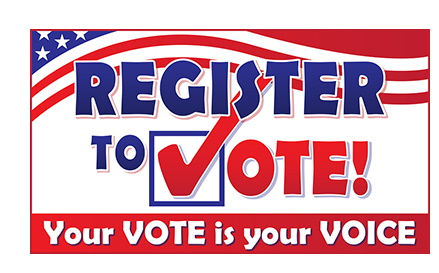CALL TO ACTION: THE HIGH COST OF FREE SPEECH,HOW CITIZENS UNITED SOLD OUR DEMOCRACY—AND HOW WE CAN BUY IT BACK
- mad2198
- Feb 24, 2025
- 4 min read
In 2010, the Supreme Court’s ruling in Citizens United v. Federal Election Commission changed the face of American democracy. With a sweeping decision, the Court declared that corporations and special interest groups could spend unlimited money on elections, arguing that money is a form of free speech. The result? A flood of dark money has since poured into political campaigns, allowing billionaires, multinational corporations, and even foreign interests to shape our elections in ways we never imagined.

The Corporate Takeover of American Elections
The Citizens United ruling has facilitated the rise of a new oligarchy, where tech billionaires and business magnates wield significant political influence. Notably, figures like Elon Musk, Jeff Bezos, and Mark Zuckerberg have aligned closely with political leaders, including President Donald Trump, to shape policies that favor their interests. Elon Musk, for instance, has been appointed to lead the Department of Government Efficiency (DOGE), granting him substantial control over federal agencies. This position has enabled Musk to implement extensive government downsizing, resulting in mass layoffs and significant budget cuts. While proponents argue this promotes efficiency, critics contend it consolidates power among a select few, undermining democratic principles.
Furthermore, the tech industry's financial support has yielded favorable policy changes. Substantial donations from tech giants have led to the rollback of regulations and the dismissal of major lawsuits against companies like SpaceX and Coinbase. This deregulation benefits the tech elite, raising concerns about the erosion of fair market competition and the amplification of wealth disparities.
This convergence of wealth and political power mirrors the dynamics observed in authoritarian regimes, where economic elites exert control over political processes. The intertwining of corporate interests with government functions challenges the foundational democratic ideals of transparency and equal representation.
Fighting Back with Consumer Power
While the Citizens United decision has given the ultra-rich and multinational corporations an outsized voice in our democracy, average citizens still hold an incredible power—the power of the dollar. Just as the Supreme Court ruled that money is speech, we can use our consumer spending to fight back.
Boycotts and Ethical Spending Work
History has proven that consumer action can drive real change. In the 1950s, the Montgomery Bus Boycott dismantled segregationist policies by crippling public transit revenue. More recently, corporations like Disney, Delta, and Coca-Cola spoke out against Georgia’s restrictive voting laws after consumers and activists pressured them through boycotts and public outcry.
Even today, consumer influence is shaping corporate policies. Companies like Patagonia and Ben & Jerry’s have committed to environmental and social justice reforms because their customer base demands it. In 2023, Bud Light faced backlash from both conservative and progressive consumers over its marketing decisions, leading to a dramatic shift in corporate strategy. This proves one thing—companies listen when their profits are at stake.
Meanwhile, major retailers like Target and Walmart have recently made headlines for rolling back their diversity, equity, and inclusion (DEI) initiatives. Amid conservative backlash and legal challenges, these corporations have quietly scaled back protections and programs meant to support marginalized communities in the workplace. This shift underscores the power of political and consumer pressure—both for and against progressive policies. In recent weeks, both Target and Walmart have experienced notable fluctuations in their stock values, influenced by their decisions to scale back Diversity, Equity, and Inclusion (DEI) initiatives.
Target's Stock Performance
Target's announcement in January 2025 to terminate its DEI programs, including the REACH initiative, led to significant financial repercussions. The company's stock experienced a sharp decline, dropping 12% immediately following the announcement, erasing billions in market value. This downturn was further exacerbated by legal challenges, such as the lawsuit filed by the City of Riviera Beach Police Pension Fund, alleging that Target misled investors about the risks associated with its DEI policies. As of February 24, 2025, Target's stock is trading at $124.46, reflecting ongoing volatility.
Walmart's Stock Performance
Similarly, Walmart's decision to scale back its DEI efforts has influenced its market performance. In January 2025, Walmart announced it would no longer consider race and gender policies when awarding supplier contracts, among other DEI rollbacks. This move, prompted by external pressures, has led to mixed reactions from shareholders and consumers. As of February 24, 2025, Walmart's stock is trading at $92.19, reflecting a decrease influenced by these strategic changes and the surrounding public discourse.
A Call to Action: Spend with Purpose
If corporations and billionaires are using their money to drown out the voice of the people, we must respond in kind. Where we spend our money matters. Support businesses that align with democracy, fair wages, and ethical practices. Avoid those that fund voter suppression, environmental destruction, or anti-democratic agendas. Research where your favorite brands stand on key issues, and let them know that your dollars won’t support policies that erode democracy.
We may not have billions to pour into elections, but we have millions of Americans who can vote with their wallets every single day.
It’s time to reclaim our democracy—one purchase at a time.







Comments